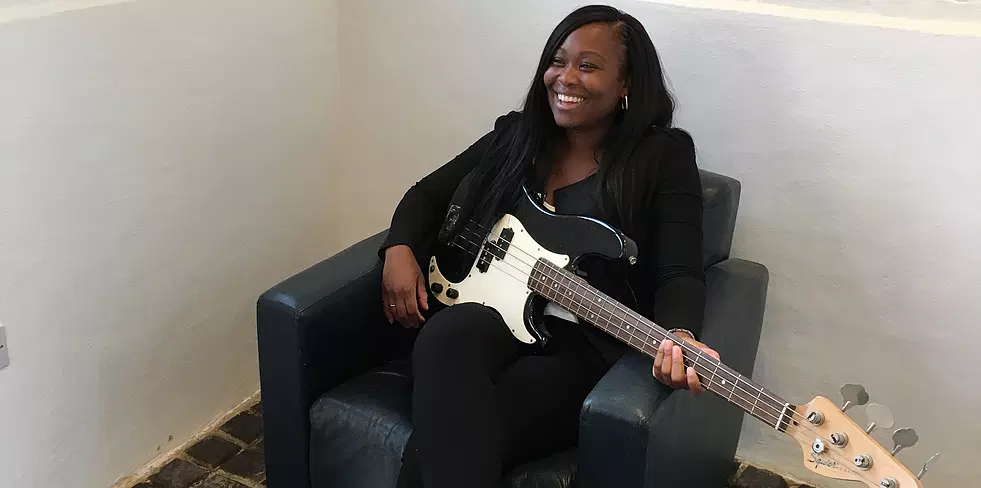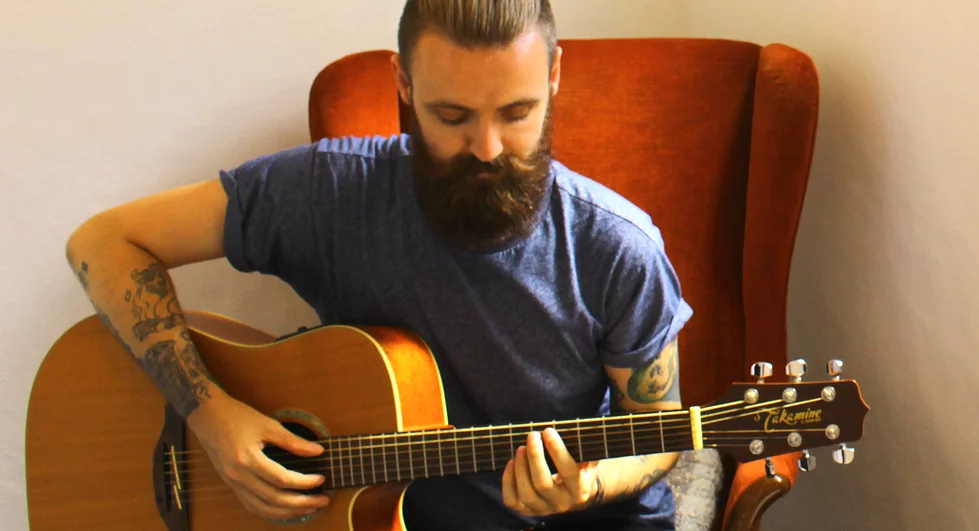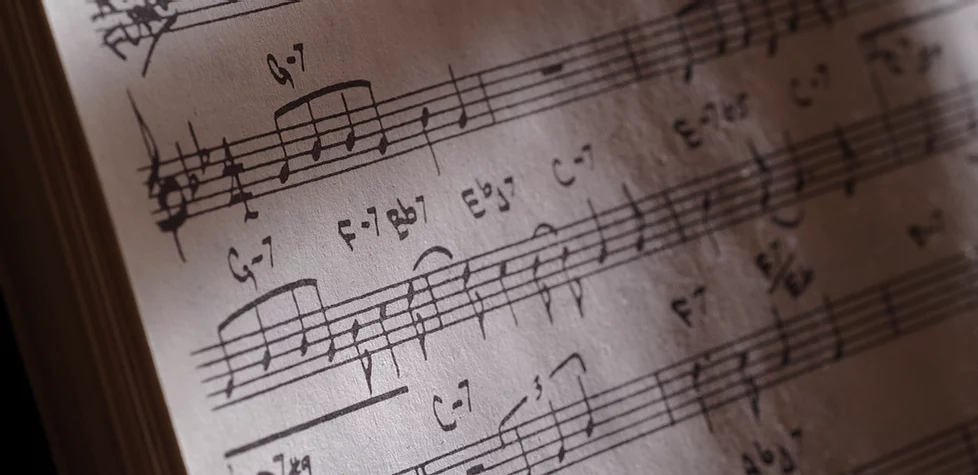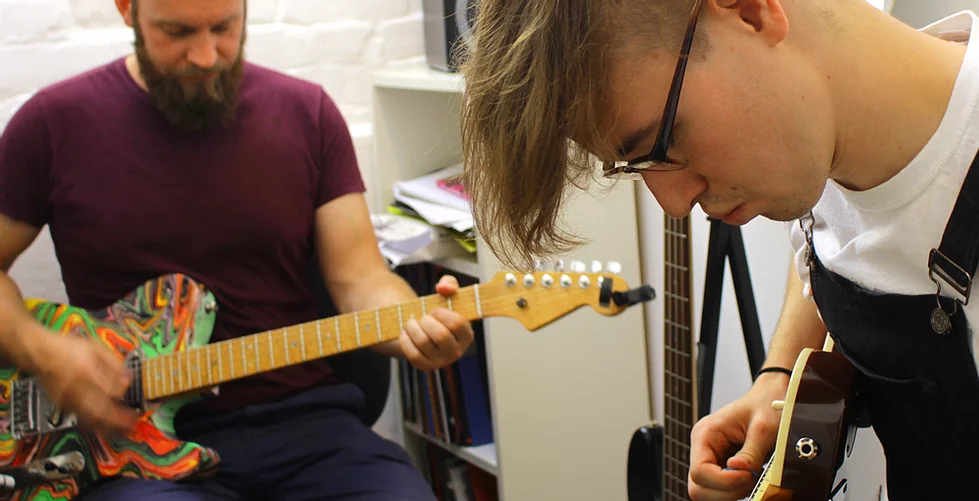Whether you are completely new to the instrument or are looking to pick up where you left off, when you learn to play guitar you will inevitably have a flood of worries and questions. It’s completely natural to feel a little overwhelmed, but how can you feel confident in your decision and rid yourself of unnecessary stress or concern?
There are a variety of different resources on the internet that can have you scrolling for hours, yet you may walk away feeling more confused than when your first began your search for answers! We’ve compiled the ultimate list of FAQs for those looking to learn the guitar, from how often you should practice to the benefits of picking up this new skill.
#1 Should I learn guitar?
Whilst for many it may seem like an obvious answer, this can be an initial sticking point for many beginners. The learning process can be challenging and could see you frustrated or demoralised if you don’t have the right support in place. It’s important to remember why you wanted to learn to play guitar in the first place during these moments of uncertainty, this will keep you focused and interested even when you are met with a challenge.
If you have an interest in guitar-based music and want to jam along to your favourite songs, learning the instrument could very well be for you. There are, however, a variety of other reasons you may choose to begin too which we’ll cover in this post.
#2 What are the benefits of learning guitar?
When you learn to play guitar, you won’t just have picked up a new skill that allows you to play along to a range of music. There are many other benefits to learning too:
- A deeper appreciation for music. As you develop as a musician, you’ll begin noticing the finer details in a song. Learning guitar makes you appreciate the effort that has gone into making a piece of music.
- Improves your coordination. Initially, your hand-eye coordination may not be very strong and you may struggle to play the guitar. But, with time you will build strong coordination between your hands – not only is useful for your playing, but it can also help you with other hobbies or daily tasks.
- Enhances your ability to concentrate. Learning guitar is difficult and requires your full concentration; each time you sit down to practice, your concentration will improve. You may also see your mind sharpen as you learn a new skill that challenges you to focus your attention.
- It’s fun! Not only is this process rewarding, but it is also enjoyable. Whether you play a few songs after work to de-stress or jam along with friends around the campfire, it’s great fun to be able to pick up and strum away to your favourite songs.
#3 What are some of the difficulties I might face?
Of course, there are some challenges you may have to overcome when playing the guitar and it’s important to consider these before you begin. If you are aware of these before starting out, you may feel more confident in your ability to overcome these potential hurdles – remember, we all have to start somewhere and face the same struggles!
- You won’t be able to pick up the guitar and immediately start playing full songs. Everybody picks up the guitar as a beginner so the first time you may feel a little disheartened, but we’ve all been in the same position. In no time, you’ll be able to start learning basic songs and feel you’ve made an improvement.
- Growing pains. Your fingers and hands may hurt when you first beginning to learn to play guitar. But, this is a temporary pain – you’ll be using new muscles and pressing down hard to create the right note, the more you practice, the quicker you’ll develop strength in your hands and fingers.
- Having the time. If you have a busy schedule, it can be difficult to squeeze in the necessary practice that will see you develop as a musician. But, just 30 minutes a few times a week, or 10 minutes a day will see your ability grow.
- Expenses. It can be expensive learning the guitar, especially if you suffer from GAS – gear acquisition syndrome! There are endless different guitars, pedals, amps, and gear you can buy as a guitarist but this does cost.
#4 What will I learn first?
If you are a beginner, you’ll first learn the basic components of the guitar – how to read TAB, hold the instrument correctly and some key terminology to build up foundations that will serve you in the future. You’ll also learn the most common chords which are: A, D, E, C, G, Am, Dm and Em, but this will usually be over the course of a few months depending on how quickly you progress.
As you learn new chords, you’ll be able to begin playing basic songs utilising these – once you have just two or three under your belt, there are a variety of different pieces you can experiment with.
If you’ve played before, your instructor will assess where you currently are and will formulate a plan to get you to where you want to be. So, you may begin by correcting old habits or learning a new riff, it completely depends on your current ability and how you want to progress.
#5 How much time should I spend practising?
In an ideal world, you would want to practice three or four times a week between your lessons – this could be a quick 10 minutes session but avoid forcing yourself into practices more than an hour long. Just picking the guitar up for a quick 15 minutes on a daily basis will see you significantly improve. Of course, it can be difficult to schedule in time to practice; we recommend creating a schedule. This helps you stay accountable and can allow you to plan your session in advance. For example, you may pick a song and focus on learning that in your practice or perhaps you choose to focus on a particular riff – when you schedule in the time, you can think about what you want to accomplish from the practice rather than just strumming a few chords with no purpose.

#6 Should I choose electric, acoustic or bass?
At Guitarlab, we tend to suggest the bass as a starting point for beginners as it provides you with an excellent foundation. As there are fewer strings to focus on, you’ll be able to play full songs quicker and build your ability to follow a rhythm. However, this isn’t for everyone, you may want to immediately begin learning on the instrument you prefer.
There are a lot of similarities between the electric and acoustic guitar, the main difference will be the type of sound created when played. If you are struggling to choose between the two, consider what type of music you wish to play in the future – is it more acoustic and folky like Ed Sheeran? Or, are you hoping to riff along to Jimi Hendrix? We can say one is easier than the other, but the main influence on your decision should be the music.
#7 When is it too late to learn to play guitar?
Never! It’s never too late to begin learning guitar – in fact, many great musicians didn’t pick up the instrument until they were in their forties or fifties. There really is no age limit, plus there are a variety of benefits to learning as you strengthen neural pathways, reduce stress, delay the onset of Alzheimer’s and enhance your social interactions.
#8 How long will it take me to play well?
It’s difficult to measure in terms of months or years, instead, you need to consider how many hours you have put into learning to play the guitar. Roughly, we can say you need just 150 hours to comfortably play a variety of chords, songs and accompaniment. If you want to play to an advanced level that allows you to confidently improvise and write music, you may need to put in over 1500 hours which could take anywhere between a couple of years to over a decade. It all depends on the time you can invest into your playing, but remember this process should be fun! And, once you’ve learnt the fundamentals, it’s a skill that will serve you for a lifetime.
#9 Do I need lessons?
There are numerous resources out there that you can utilise to learn to play guitar, but there is no better way to learn than by working with a teacher. If you are serious about learning the guitar, a teacher will provide you with the tools and expertise you need to develop. They’ll have tried and tested methods to help you overcome any hurdles and can support you with your practice, ultimately ensuring you remain motivated. In addition, a guitar teacher will celebrate each new milestone you reach and personalise your learning plan, catering to your specific goals as a musician.
#10 How many chords are there on the guitar?
Strictly speaking in mathematical terms, there are 2341 possible chords on the guitar! There are endless possibilities for you to explore as you develop as a guitarist. But, you’ll find as you learn new songs that the majority focus on just a few different chords. These tend to be: G Major, C Major, D Major, and E Minor and it’s likely a piece of music will incorporate one, if not all of these chords.
If you have any other questions about learning guitar that we haven’t touched on here or want to start your learning process, please don’t hesitate to contact us. Get in touch with our Guitarlab team at 01483 239935 or 07429 074072 and we’ll be more than happy to help.





